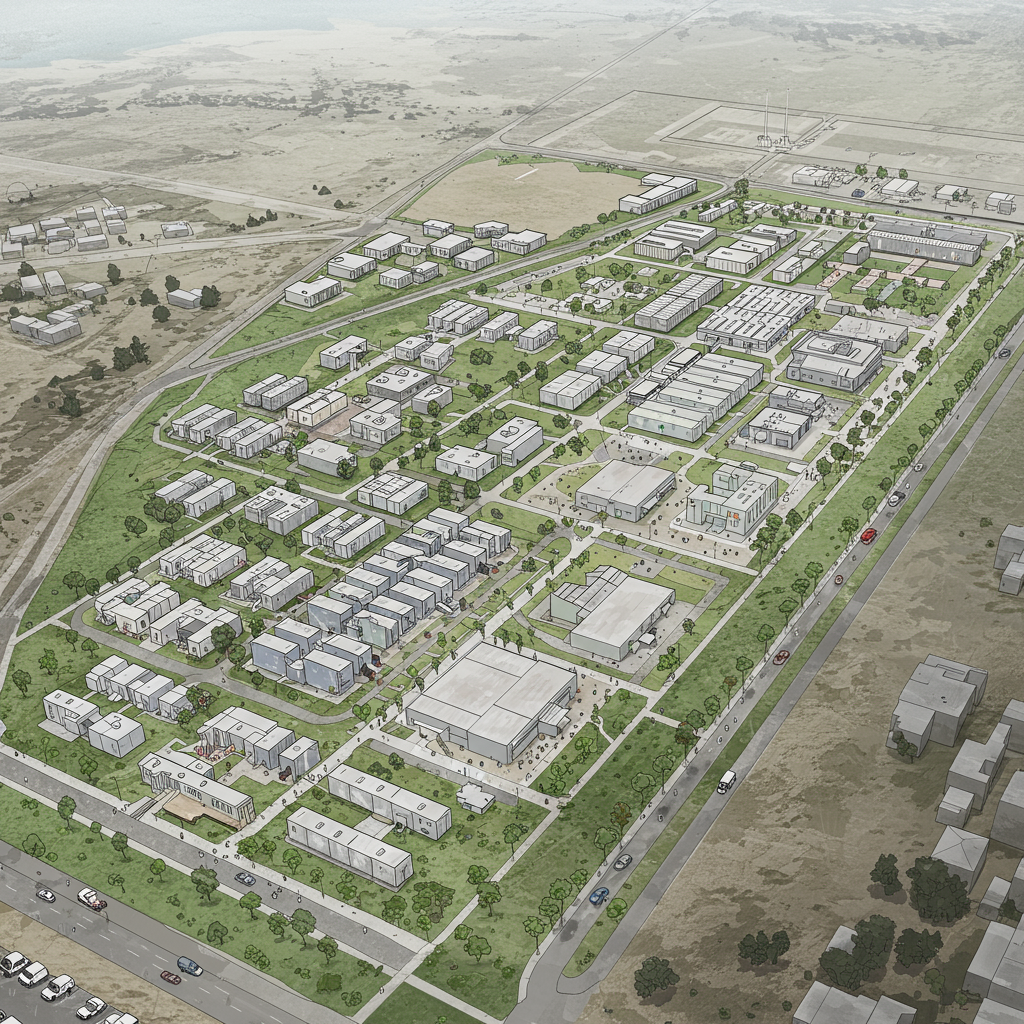Netanyahu Links Ancient Debt to Future of Iran After Missile Attack
Speaking from a hospital in Beersheba struck just hours earlier by an Iranian ballistic missile, Israeli Prime Minister Benjamin Netanyahu invoked a powerful historical parallel, suggesting the time has come for Jews to “repay” an ancient debt to the Persian King Cyrus the Great by potentially facilitating the “liberation” of Iran.
The dramatic statement came during a tour of Beersheba’s Soroka hospital on Thursday, June 19, 2025, where a building sustained a direct hit. Israeli leaders described a near-miracle, as an evacuation shortly before the strike averted potentially significant loss of civilian life – a scenario tragically familiar since the October 7, 2023 attacks. For Netanyahu, whose political future appeared uncertain after that date, the current conflict seemingly positions him as a leader capable of fundamentally reshaping the Middle East.
From Babylon to Beersheba: A Historic Parallel
Netanyahu explicitly connected the current tensions with Iran to events 2,500 years ago. He reminded listeners that Cyrus the Great, the founder of the Achaemenid Empire, liberated the Jewish people from their Babylonian captivity, allowing them to return to Jerusalem and rebuild their Temple. Standing over a thousand kilometers and millennia away from ancient Babylon, the Prime Minister posited a reversal of roles.
“I want to tell you that 2,500 years ago, Cyrus the Great, the king of Persia, liberated the Jews,” Netanyahu stated. “And today, a Jewish state is creating the means to liberate the Persian people.”
This framing suggests that potential Israeli actions against the current clerical regime in Iran could be seen as fulfilling a long-standing historical obligation, transforming a modern geopolitical conflict into a destiny-laden mission.
Regime Change as a Potential Outcome?
While not declaring regime change as Israel’s primary objective, Netanyahu indicated it could be a significant result. “People ask me – are we targeting the downfall of the regime?” he said amidst the hospital’s debris. “That may be a result, but it’s up to the Iranian people to rise for their freedom. Freedom is never cheap… it’s up to them. But we may create conditions that will help them do it.”
This perspective resonates with a view held by some observers and commentators who portray Israel’s military actions, sometimes dubbed “Operation Rising Lion,” as actively weakening the Iranian regime’s military and nuclear capabilities to clear a path for internal change. These voices argue the Islamic Republic is a brutal, oppressive tyranny that has impoverished its people while funding proxies and pursuing dangerous military programs. They suggest Israeli strikes, reportedly targeting command centers, nuclear facilities, and missile sites, are crippling the regime.
Furthermore, some claim significant internal discontent exists within Iran, fueled by years of repression and economic hardship, with movements like the 2022 “Woman, Life, Freedom” uprising demonstrating the population’s desire for liberty. While the conflict may temporarily suppress large-scale protests, some proponents of the “liberation” narrative believe Israeli military pressure is emboldening Iranians and that a groundswell of popular fury could lead to a revolution. Some even claim widespread support for Israel among regime opponents, with social media sentiment cited as evidence, including figures sometimes claimed to be as high as 90%.
The notion that regime change could be a possible, even desired, outcome marks a potential evolution in stated Israeli war goals, which were initially focused primarily on dismantling Iran’s nuclear and ballistic missile threats according to principles akin to the “Begin Doctrine.”
Controversy and Counter-Claims
The strike on Soroka hospital highlights a sensitive aspect of the conflict: the targeting of civilian infrastructure. Netanyahu vehemently condemned Iran’s actions, stating, “We’re targeting missile sites. They’re targeting a hospital… They’re the arch-terrorists of the world.”
This contrasts sharply with criticisms leveled against Israel regarding the extensive damage to hospitals and medical facilities in Gaza during its military operations there. An Israeli spokesperson for emergency services defended the distinction, asserting Soroka was a purely civilian hospital serving the diverse population of the Negev, including Jewish and Bedouin residents, with no tunnels or military assets underneath, unlike claims made about facilities in Gaza. They called the targeting of Soroka “a horrendous state of affairs.”
Iran’s foreign minister countered, claiming their missile targeted a nearby military headquarters and caused only “superficial” damage to the hospital, although evidence at the scene indicated a direct hit. Netanyahu dismissed Iran’s claims of a nearby military site, stating none existed for miles around, a claim some observers noted should be viewed in light of his reputation for narrative crafting. International humanitarian law provides strong protections for hospitals and medical personnel, setting a high bar for any actions impacting them.
Seeking External Support
Looking beyond the immediate conflict, Netanyahu hinted that achieving the transformative historical role he envisions for Israel, potentially enabling Iranian liberation, would require significant external support. He specifically highlighted former U.S. President Donald Trump, whom he praised as a “tremendous friend, a tremendous world leader” possessing “resolve, determination, and clarity,” suggesting future collaboration could be crucial.
As the conflict unfolds, Netanyahu’s evocation of Cyrus the Great and the idea of repaying an ancient debt adds a profound, albeit controversial, historical and potentially messianic dimension to Israel’s actions against the Iranian regime.
References
- www.theguardian.com
- www.israelnationalnews.com
- <a href="https://www.americanthinker.com/blog/2025/06/theiranianpeoplesthunderous_rebellion.html”>www.americanthinker.com
- worldisraelnews.com



